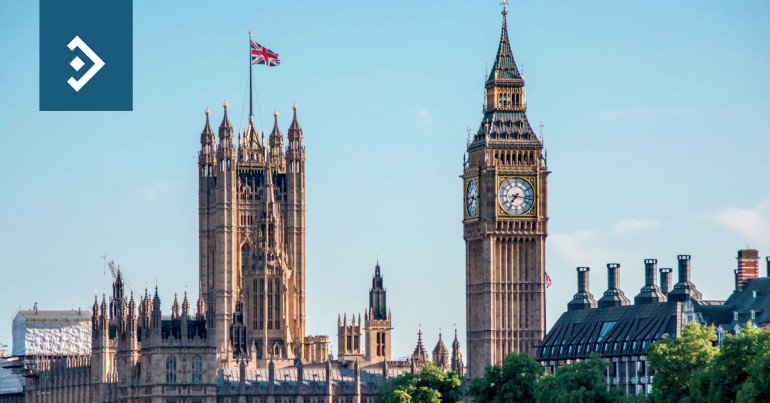
Real wages continue to fall
Morning mid-market rates – The majors
16th November: Highlights
- Wages rise at highest rate in twenty years
- Bostic sees inflation easing
- GDP grew by 2.1% year-on-year in third quarter
GBP – Big gaps still exist between UK and EU over Brexit
Despite the pace of the increase, real wages fell at a record rate as they still failed to keep pace with inflation.
Prime Minister, Rishi Sunak, speaking at the G20 gathering of world leaders in Bali, urged bosses to curb their pay, which, while it would not have any material effect on overall wage inflation, would show a degree of solidarity with employees.
Sunak went on to be critical of nurses’ demands for a double-digit pay award which, if not met, could see nurses take strike action for the first time in history. He feels that the demand for seventeen percent is both unrealistic and unaffordable and will simply contribute to a wage spiral, evidence of which is already beginning to manifest itself in the data.
In the recent past, the demands of supermarkets have seen the price of milk to farmers tumble, which the retailers themselves have been accused of profiteering. Now it is egg producers who are under pressure due to the dual demands placed on the industry and the rise of avian flu, which is seeing entire flocks slaughtered.
Several producers have left the industry, saying the demands made by supermarkets are unreasonable.
This has led to a serious shortage of eggs on supermarket shelves and has seen several shops rationing supply to ensure that there are enough to go around.
The avian flu epidemic is also affecting the production of turkeys for the Christmas market, with outlets promoting beef as an alternative, if expensive, option.
While the employment report highlighted wages, the employment rate rose marginally from 3.5% to 3.6%.
Today sees the release of the inflation report for October. Headline inflation is expected to rise from 10.1% to 10.7%, which will add to pressure on the Bank of England to hike rates again at their next meeting. Andrew Bailey, the bank’s Governor, will appear before the House of Commons Treasury Committee today and will no doubt be questioned by MPs about the Central Bank’s inability to bring inflation under control.
The pound spiked above the 1.20 level versus the dollar briefly yesterday, although it was unable to find any momentum and fell back to close at 1.1862
Recommend our services and earn up to £75 per successful referral
USD – FOMC still expected to push ahead with another hike
Bostic spoke of his belief that there is a glimmer of hope that inflation may be easing, but there is still a long way to go. He went on to say that the Central bank has more work to do to drive short-term interest rates into restrictive territory.
With the Fed funds rate having now reached 4%, Bostic would appear to be an advocate of rates reaching 5%, which has been discussed as a target recently.
The Fed has hiked rates by seventy-five basis points at its last four meetings, and the minutes of the most recent meeting will be published in a week’s time. However, the situation is changing rapidly, as the Central Bank, by its own admission, is being led by data.
The most important data stream will be evidence of a cooling of the employment market.
Bank of America, the prominent Wall Street bank, has already said it believes that the recent hikes in interest rates will drive job growth into negative territory by the end of the first quarter of next year.
While there is still time for that to happen which would significantly change the Fed’s outlook, it would mean that the 4% level would be a watershed for corporate CFOs to rein in any form of investment in their business and for this to happen over the space of a single quarter would be unprecedented.
Bostic made no specific comment regarding next month’s FOMC meeting. Many think that the Fed Funds rate will be hiked by fifty basis points as the Fed begins to slowly taper its aggressive monetary policy tightening of the past few months.
The dollar index fell heavily to a low of 105.31 yesterday but recovered quickly to close at 105.55.
EUR – Economic performance beginning to improve
The Russians immediately denied responsibility, stating that the events were created to provide a basis for further provocation by NATO. Poland and Hungary immediately held crisis talks in which they discussed their state security, and no doubt alarm bells sounded across Europe and Washington.
It is hard to imagine the basis for anything other than the potential escalation being a grave error by Russian personnel. It would be better for Russia to own it rather than blame the other side.
Ukrainian President Volodymyr Zelensky immediately laid the blame for the incident at Moscow’s door and said that such an escalation shows that Russia is not interested in bringing the conflict to a close. That was earlier emphasized by several Ukrainian cities coming under severe attack from cruise missiles. Zelensky also confirmed that more than half of the Ukrainian capital Kyiv is without electricity.
Any potential escalation of the war, whether accidental or not, will worsen the economic situation across the entire Eurozone. However, those countries closest to the border face worrying times. The slowly failing economy of Ukraine, which has long been a source of several basic foodstuffs, will remain closed well into 2023 as the war continues.
This week has seen data for industrial production suffer a fall month on month from 2% to 0.9% as the economy comes close to a recession. Q3 GDP remains in positive territory, growing by 0.2%. This is likely to be the last quarterly increase for some time, as several members of the Union are facing negative growth in the fourth quarter.
Given that a few countries are still able to produce growth, a recession may not arrive until the first quarter of 2023, but ECB officials are beginning to acknowledge that a recession for the entire Eurozone has become inevitable.
The euro is making positive strides to move conclusively away from parity versus the dollar. Any rise will aid the ECB’s battle with inflation. A move above the 1.05 level cannot now be ruled out.
Single currencies reached a high of 1.0481 yesterday, although the move was short-lived. It fell back to close at 1.035
Alan Hill
Alan has been involved in the FX market for more than 25 years and brings a wealth of experience to his content. His knowledge has been gained while trading through some of the most volatile periods of recent history. His commentary relies on an understanding of past events and how they will affect future market performance.



